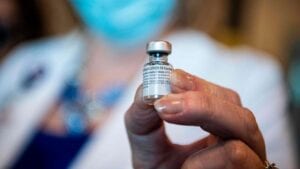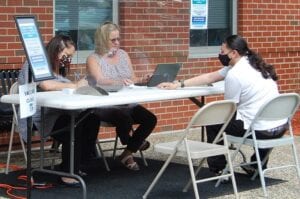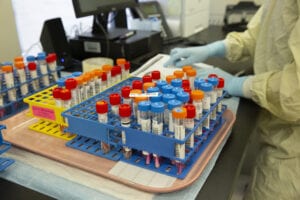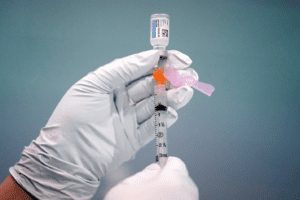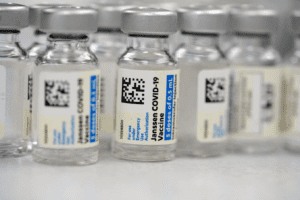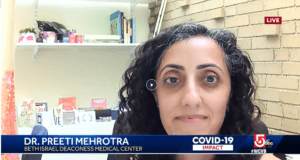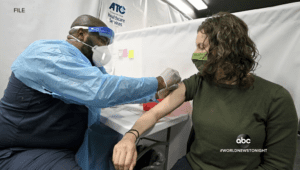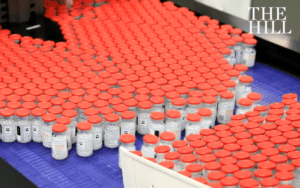Study shows booster shot after 6 to 12 months likely to provide best protection from COVID-19, Pfizer says
Pfizer and BioNTech have released initial data from a study on booster shots for their COVID-19 vaccine, saying a third dose delivered about six months after the second shot has shown neutralization titers are five to 10 times higher than after two primary doses. The FDA and the CDC will determine if and when booster shots will be allowed. Dan Barouch, MD, PhD (Center for Virology and Vaccine Research, BIDMC) told ABC News in late May that the pharmaceutical companies have an economic incentive and that a decision on booster shots should be made based on public health solely and not on economic incentives of the companies.

